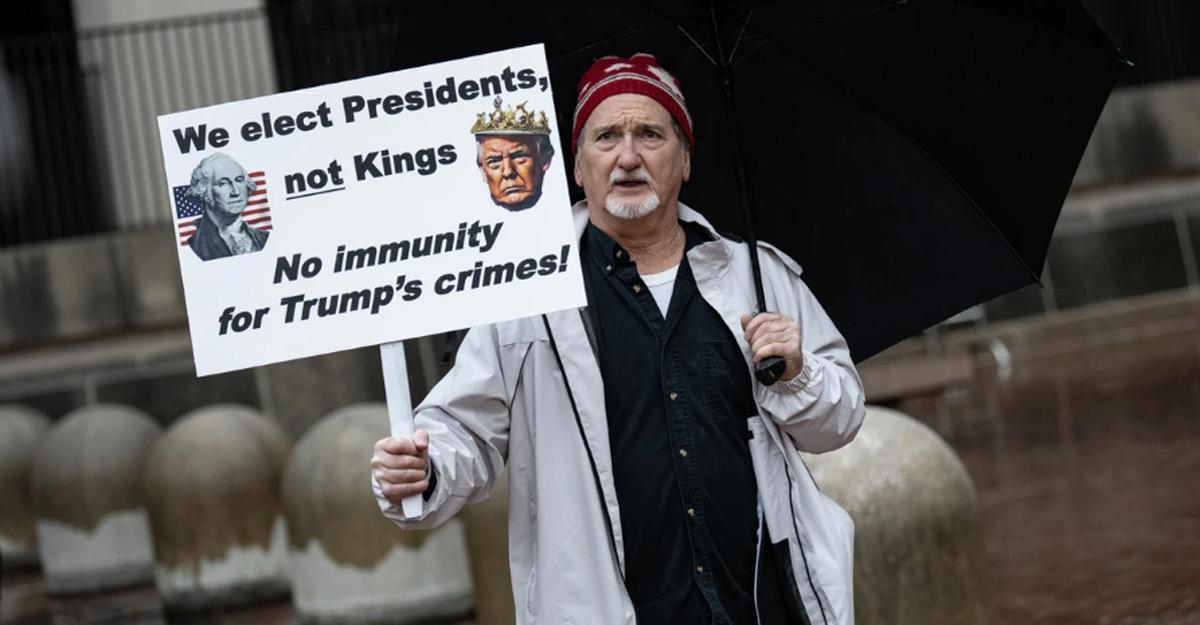Anil Madan
Africa-Press – Mauritius. Donald Trump faces some 90 criminal charges, most for acts while he was president, and some after he left office. In the case charging him with using illegal efforts to overturn the results of the 2020 presidential election and to defraud the US government, Trump moved to have the entire case dismissed on the grounds that a President cannot be prosecuted for acts committed while he was president. Added to that is the claim that the President is answerable only to Congress, and not in the courts.
This latter claim is based on the text of the US Constitution dealing with punishment upon impeachment: “Judgment in Cases of Impeachment shall not extend further than to removal from Office, and disqualification to hold and enjoy any Office of honor, Trust or Profit under the United States: but the Party convicted shall nevertheless be liable and subject to Indictment, Trial, Judgment and Punishment, according to Law.
Based on this language, Trump argues that the president is answerable only to Congress under the impeachment clause and, if he had been convicted, he would be answerable for criminal acts.
However, since he was not convicted in his impeachment trials, his acquittal insulates him from any further liability. Hence, the claim is, he is immune from liability.
In the early days of this nation’s history as a newly established Republic, the notion of separation of powers — among the executive, legislative, and judicial branches — was a key element of the structure of the government.
Trump’s lawyers argued that “the immunity of the President’s official acts from judicial second-guessing has been treated as self-evident and foundational from the dawn of the Republic.
” They cited Chief Justice Marshall’s opinion in the landmark case, Marbury v.
Madison (1803) that “by the constitution of the United States, the President is invested with certain important political powers, in the exercise of which he is to use his own discretion and is accountable only to his country in his political character, and to his own conscience.
” And that, “the acts of such an officer, as an officer, can never be examinable by the courts.
The qualifying phrases “in the exercise of which he is to use his own discretion” and “the acts of such an officer, as an officer,” act as delimiters of a supposed absolute immunity.
Trump’s attack on the validity of the indictments started in the federal district court for the District of Columbia where the criminal charges were brought.
Judge Tanya Chutkan, the federal district judge assigned to the case, ruled on Trump’s motion to dismiss the indictment in its entirety on the claimed ground that the Constitution grants him “absolute immunity from criminal prosecution for actions performed within the ‘outer perimeter’ of his official responsibility” while he served as President of the United States, so long as he was not both impeached and convicted for those actions.
Judge Chutkan ruled that the Constitution’s text, structure, and history do not support that contention. She wrote: “No court—or any other branch of government—has ever accepted it. And this court will not so hold.
Whatever immunities a sitting president may enjoy, the United States has only one Chief Executive at a time, and that position does not confer a lifelong ‘get-out-of-jail-free’ pass.
” In an emphatic ruling, Judge Chutkan noted that former Presidents enjoy no special conditions on their federal criminal liability. Trump is subject to federal investigation, indictment, prosecution, conviction, and punishment for any criminal acts while in office.
Trump’s position evokes memories of President Nixon’s interview with Richard Frost where Frost asked if the President could decide that it’s in the best interest of the nation and do something illegal.
Nixon replied: “Well, when the president does it . . . that means that is not illegal. ” A careful reading of the transcript of the Frost-Nixon interview shows that Nixon did not go as far as Trump.
He seemed to suggest that those who acted under the President’s direction in such situations would be immune from prosecution and emphasized that burglaries are per se illegal, but when undertaken because of an expressed policy decided by the President in the interests of national security, then that means what would be technically illegal does not subject those who engage in such activity to criminal prosecution.
And Nixon expressly stated: “I do not mean to suggest that the President is above the law. ” President Nixon’s comments show his appreciation of the distinction between the need for unfettered discretion that the President must have in his ability to make and carry out executive policy decisions, versus the fundamental American notion that no person is above the law.
Trump, on the other hand, tried to turn the proposition on its head and essentially argued that there was no law above him as President. The text of the Constitution is our starting point. It contains no provision conferring immunity on a President.
In contrast, the Constitution grants to Senators and Representatives, privilege from arrest while attending sessions of their respective Houses, and in traveling to and returning from the same, and they may not be questioned in any other Place for any Speech or Debate in either House. The only exceptions are for Treason, Felony and Breach of the Peace. The omission of presidential immunity may therefore be treated as deliberate.
For More News And Analysis About Mauritius Follow Africa-Press







